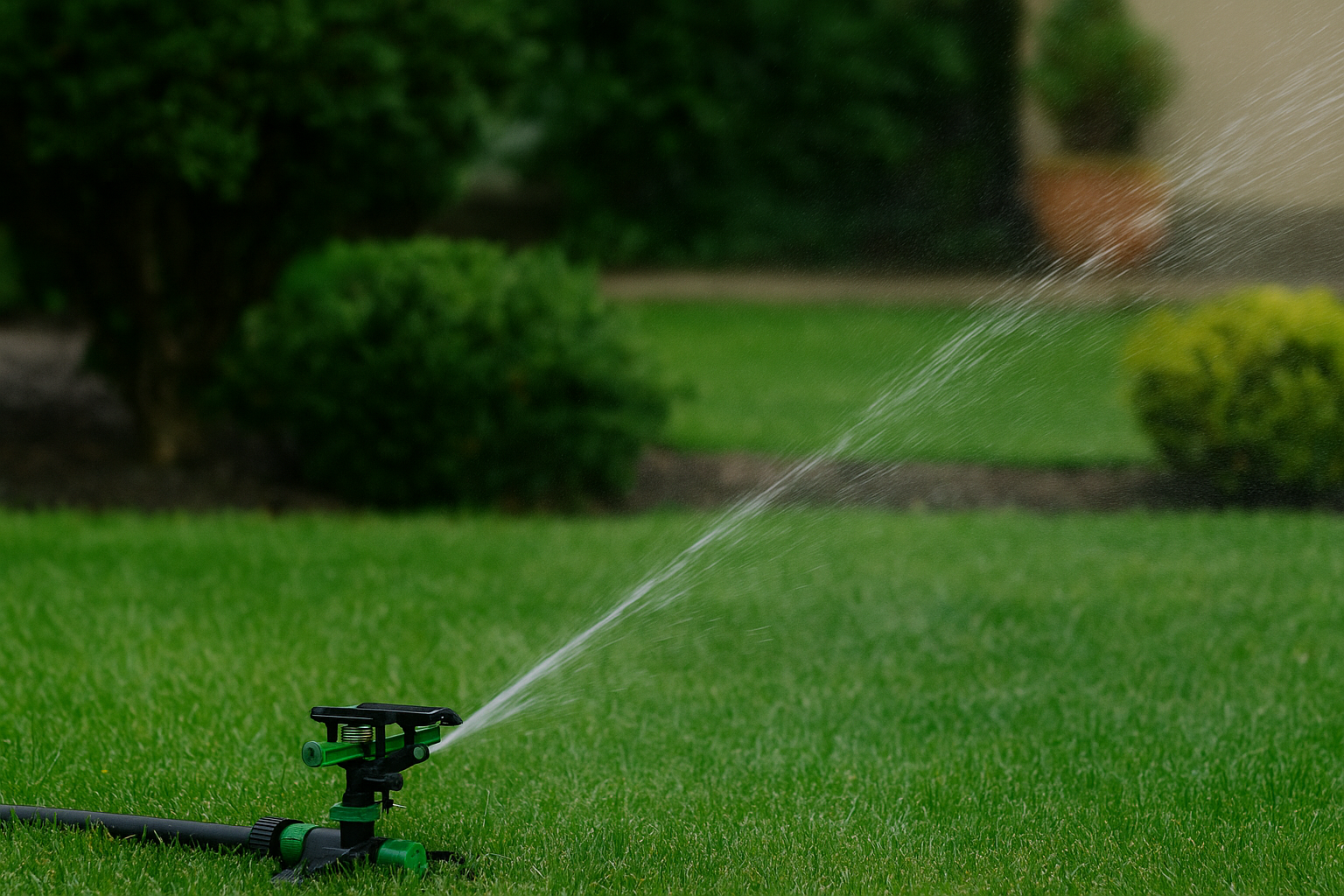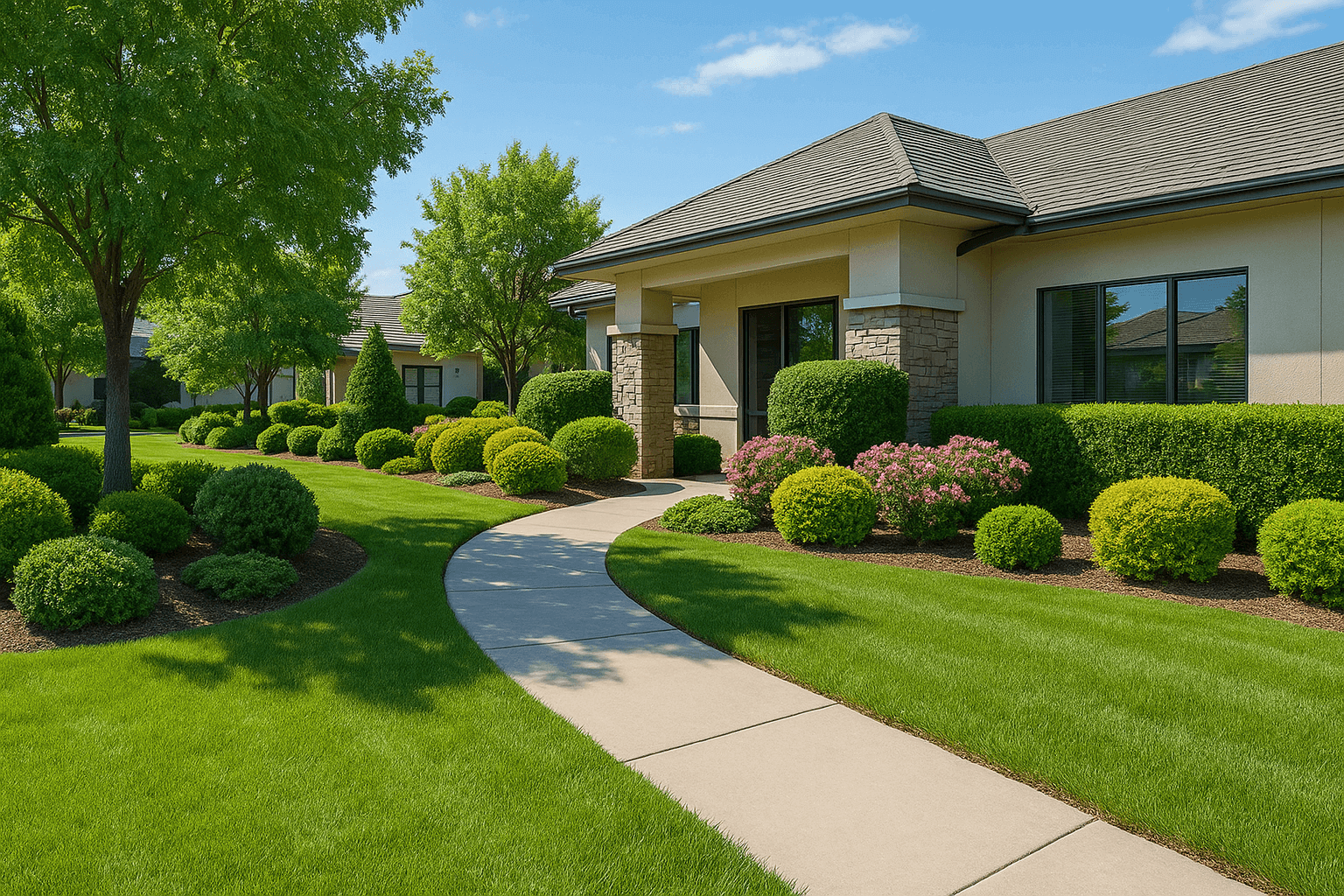Everyone wants a lush, weed-free lawn—but at what cost? As more homeowners and property managers become aware of health and environmental concerns tied to lawn care chemicals, a growing debate has emerged: should you stick with traditional herbicides or explore organic alternatives? Understanding your options is the first step to making smarter, safer lawn care decisions, whether you live in a big city or a smaller community like the Chico area.
Why Weed Control Matters
Lawn weeds compete with turfgrass for nutrients, water, and sunlight. Left unchecked, they can quickly overtake a lawn, leading to patchy grass, soil erosion, and lower property appeal. The United States alone applies 70 to 80 million pounds of lawn pesticides each year, much of it for purely aesthetic reasons. Effective weed management isn’t just about looks—it supports the overall health of your landscape.
Chemical Weed Control: Fast, Familiar… and Controversial
Chemical herbicides like glyphosate (Roundup), 2,4-D, and dicamba are mainstays in conventional lawn care. These products are designed to either prevent weeds from germinating (pre-emergent) or kill existing ones (post-emergent). Their appeal lies in speed and reliability.
Benefits:
- Quick and highly effective.
- Widely available at home improvement stores.
- Capable of targeting specific weed types.
Drawbacks:
- Health risks: Glyphosate has been labeled a probable carcinogen by the World Health Organization, even as the U.S. EPA maintains it is safe when used as directed.
- Environmental impact: Runoff can contaminate water sources and harm pollinators.
- Legal concerns: Lawsuits have led companies like Bayer to remove glyphosate-based Roundup from residential markets.
These contradictions between regulatory bodies, court rulings, and corporate decisions highlight the complexity of the issue.
Organic and Natural Alternatives: Greener but Tougher
Organic weed control methods include options like corn gluten meal (a natural pre-emergent), vinegar-based sprays, and even biological controls like fungi that target specific weeds.
Benefits:
- Generally safer for children, pets, and the environment.
- Compatible with city or county bans on synthetic chemicals.
Drawbacks:
- Less consistent results.
- Often require multiple applications to effectively remove weeds and prevent regrowth.
- Can damage grass if not applied properly.
While they can play a valuable role, most experts agree organic methods work best as part of a larger integrated strategy rather than standalone solutions.
Prevention Is Better Than the Cure
One of the most effective ways to combat weeds is to make your lawn a place they can’t thrive. Here are essential prevention tactics:
- Mow at the proper height (usually 3-4 inches).
- Aerate compacted soil annually.
- Overseed bare spots to prevent weed colonization.
- Fertilize based on soil test recommendations.
Healthy, dense turf naturally outcompetes most weed growth, reducing the need for interventions. Preventing weed growth starts with consistent lawn care and proactive soil management.
Know Your Weeds: Annual vs. Perennial
Not all lawn weeds behave the same. Understanding the difference can help you choose the right weed killer or prevention tactic:
- Annual weeds (like crabgrass) grow from seed each year and can often be managed with pre-emergent treatments.
- Perennial weeds (like dandelions or clover) return year after year and often require post-emergent or selective herbicides to kill weeds at the root.
A proper lawn care service will usually tailor their approach based on the type of weeds present.
Lawn Care in the Chico Area and Similar Climates
In drier climates like the Chico area and surrounding parts of Butte County, lawn care presents specific challenges. Limited rainfall and compacted soil can make weed control difficult. Deep watering, proper mulching, and regular soil aeration are especially important to prevent weed infestation.
Also, choosing drought-tolerant turfgrass and applying pre-emergent herbicides in early spring can help control annual weeds before they emerge.
Legal and Safety Considerations
Herbicide use is governed by the EPA under the Federal Insecticide, Fungicide, and Rodenticide Act (FIFRA). The product label is legally binding, meaning misuse can carry penalties, especially for commercial applicators.
Local laws are also evolving. Over 190 U.S. communities have enacted restrictions or bans on certain lawn pesticides. While some states preempt local control, others empower municipalities to go further than federal rules.
Homeowners should:
- Read and follow all product instructions.
- Post signs after treatment if required.
- Consider neighbors, pets, and local wildlife before applying any chemicals.
So… What Should You Use?
The best approach for most lawns is integrated weed management:
- Prioritize turf health through proper care.
- Use natural or organic treatments when practical.
- Apply chemical herbicides only as a last resort and with care.
Many lawn care services now offer “organic” or hybrid treatment plans. If you’re going DIY, invest time in understanding your lawn’s specific needs and local regulations.
Final Takeaways
Perfect lawns don’t have to come at a high cost to health or the environment. Whether you choose chemical, organic, or blended methods, the key is informed, responsible use. A few weeds in your yard might be a small price to pay for a safer, more sustainable lawn.
Need help controlling weeds in your lawn or garden? We can help! Our team works with homeowners and property managers throughout Chico and nearby Butte County communities. Give us a call at 530) 783-7333, email us at sales@insideoutchico.com, or reach out here to schedule a consultation.







